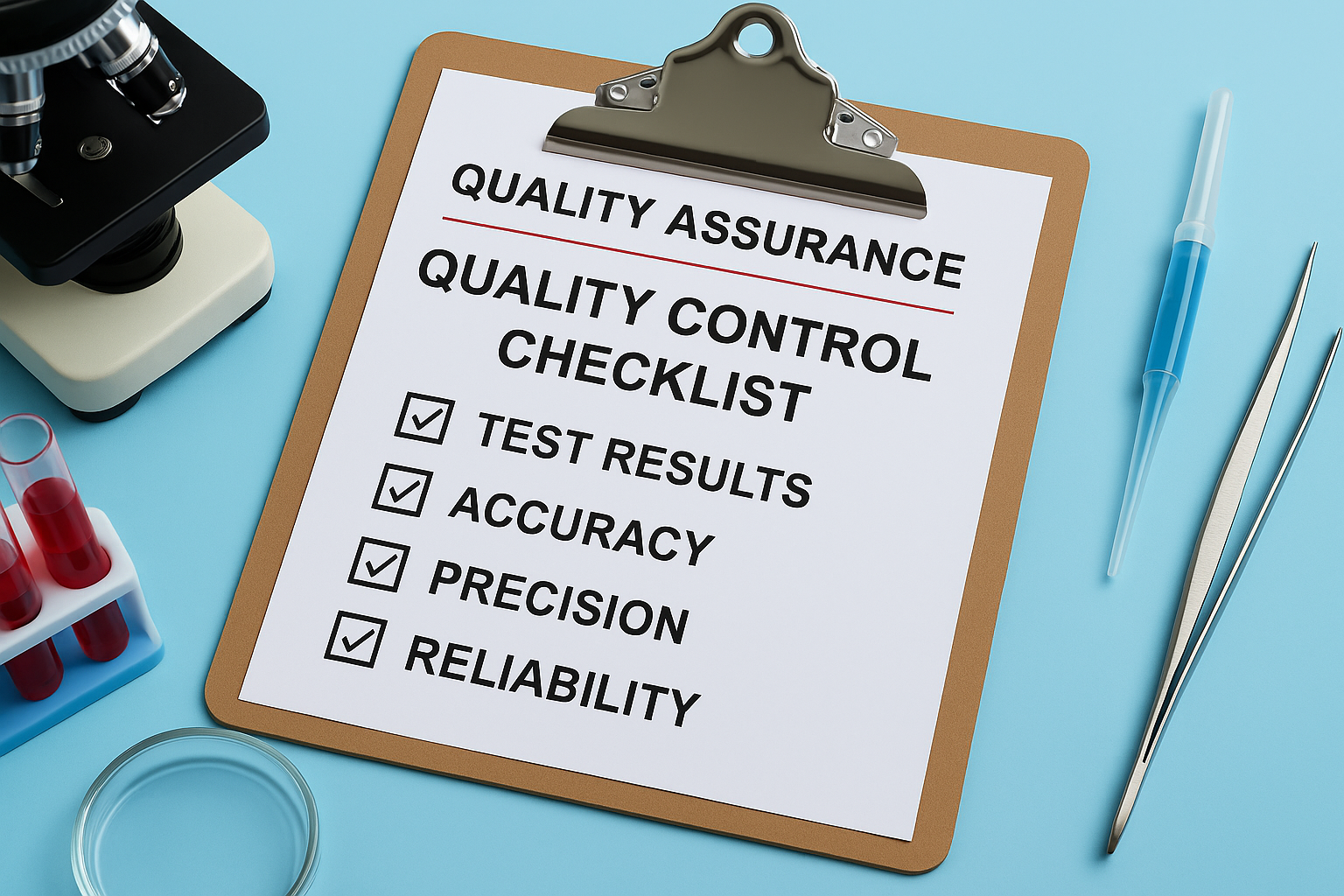Author: Oluwatosin Idowu
Data from the lab is the basis of up to 70% of clinical decisions globally. That foundational role needs to be better utilized and validated in much of sub-Saharan Africa. While the demand for African participation in research has grown—spurred by calls for equity, inclusivity and biological diversity—one of the most overlooked barriers remains diagnostic reproducibility.
This is especially non-negotiable for pharmaceutical and diagnostics R&D, where a single data deviation can derail a decade-long development pipeline. If African labs are to become indispensable to global innovation, diagnostic credibility built through standardized, quality-assured processes must become the norm, not the exception.
Here, we explore what diagnostic quality really means, why it’s a prerequisite for inclusion in global R&D and how African labs can transform themselves into trusted engines of data-driven discovery and decision-making.
What is Quality in the Lab and Why Does It Matter?

Laboratory quality is the foundation upon which all diagnostic, surveillance and research activities rest. It is the test result’s consistent accuracy across time, personnel, equipment and settings. A biomarker identified in one part of the world is only truly clinically useful if its relationship to a condition is consistent across diverse populations. So validating this consistency becomes a critical step in research and development. Poor lab quality means being unsure whether the process by which results are produced can be trusted, which defeats the entire goal of validation.
To build confidence in test results, laboratories employ structured systems of Quality Assurance (QA) and Quality Control (QC). These encompass a broad framework of standards and processes.
Quality Assurance is a proactive process that ensures that every part of the system is built for reliability. It focuses on preventing errors before they occur.
Quality Control is test-specific. It monitors and validates the performance of individual tests or instruments, ensuring that they function properly day to day. QC is further divided into:
- Internal Quality Control (IQC): Regular in-house procedures using known control materials to check test accuracy and consistency.
-
External Quality Assessment (EQA): Periodic evaluations by external organizations that send test samples to assess lab performance against a broader benchmark.
Closely related to quality is the concept of reproducibility. Reproducibility is currency in global research and development, especially in this era of collaborations and multi-center trials that could happen across continents. It is about consistently producing results that others can replicate. When a test result generated in Lagos aligns with the same test done in Berlin or Boston, it signals that the underlying processes and quality systems are all sound.
As healthcare becomes more interconnected, the demand for standardized diagnostic results grows. Regulatory agencies and healthcare innovators now expect diagnostic results that inform clinical trials or patient care to be generated from labs with internationally recognized quality systems like ISO 15189 and CAP. These standards enable confident comparability of results across countries and ultimately facilitate the inclusion of African labs and data in global R&D pipelines.
The Total Testing Process (TTP): Where Errors Lurk

When we talk about laboratory quality, it is not just about the moment when testing occurs (analytical phase). That’s just one part of the Total Testing Process (TTP), which includes all stages from test ordering and specimen collection to final interpretation and clinical action.
In fact, research shows that pre-analytical and post-analytical errors account for most laboratory-related diagnostic mistakes (1).
In the pre-analytical phase, sample quality can be compromised by poor collection technique, mislabeling, improper storage or transport. A hemolyzed blood sample, for instance, can falsely elevate serum potassium levels and invalidate crucial troponin tests that may indicate a heart attack, leading to misdiagnosis or repeat testing. Time from collection to analysis, temperature control and handling consistency all influence result integrity before testing begins.
The post-analytical phase is equally crucial. Inconsistent reporting formats and reference ranges, delayed turnaround times or incomplete communication of results can affect clinician decisions, especially in high-stakes or time-sensitive settings. This is particularly concerning in resource-limited environments where overburdened systems and fragmented workflows increase the likelihood of error. Implementing standardized reporting protocols, establishing clear channels for communicating results and data archiving, are all fundamental to closing the loop on quality.
If labs address vulnerabilities across the entire TTP, they enhance diagnostic reliability and safeguard patient outcomes. This holistic approach improves internal performance too and is the entire foundation of lab accreditation, which we explore finally as a gateway to global research participation.
Accreditation and the Role of ISO 15189 & CAP

International accreditations like ISO 15189 and College of American Pathologists (CAP) are not just ornamental badges. They are operational proof that a laboratory is competent and standardized with global expectations. As a CRO, we use this to determine eligibility for partnerships and clinical trial inclusion.
ISO 15189 focuses on the competence of medical laboratories in the TTP. It mandates the rigourous implementation of quality management systems (QMS), comprehensive standard operating procedures (SOPs) and regular internal audits. CAP provides laboratory accreditation based on an inspection model that assesses a lab’s adherence to technical and operational excellence. Both accreditations emphasize patient safety, reliable performance and continual improvement.
Without these certifications, especially ISO, Africa risks exclusion from global clinical trials, including assay development initiatives. Medical innovators in pharma and biotech want assurance that the patient data generated about their drugs or devices are scientifically sound and regulatory-grade. Accreditation becomes the trust pipeline, a credential that attracts research collaboration and long-term investment in infrastructure and talent.
Metaphor’s Site and Capacity Development service equips institutions to attain accreditation standards, according to the established WHO AFRO SLMTA/SLIPTA programme. We are opening doors to sustainable research partnership opportunities where Africans are represented.
References
1. Chaudhry, A. S., Inata, Y., & Nakagami-Yamaguchi, E. (2023). Quality analysis of the clinical laboratory literature and its effectiveness on clinical quality improvement: A systematic review. Journal of Clinical Biochemistry and Nutrition, 73(2), 108. https://doi.org/10.3164/jcbn.23-22
